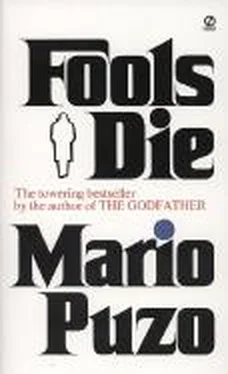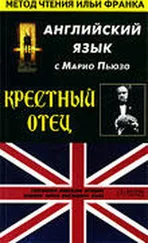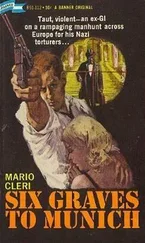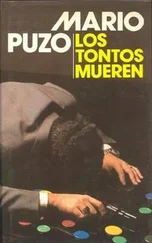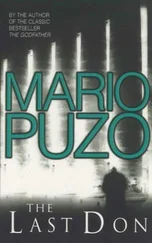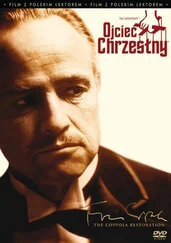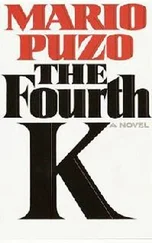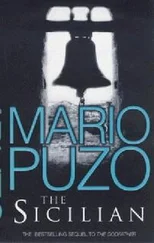Mario Puzo - Fools die
Здесь есть возможность читать онлайн «Mario Puzo - Fools die» весь текст электронной книги совершенно бесплатно (целиком полную версию без сокращений). В некоторых случаях можно слушать аудио, скачать через торрент в формате fb2 и присутствует краткое содержание. Жанр: Современная проза, на английском языке. Описание произведения, (предисловие) а так же отзывы посетителей доступны на портале библиотеки ЛибКат.
- Название:Fools die
- Автор:
- Жанр:
- Год:неизвестен
- ISBN:нет данных
- Рейтинг книги:3 / 5. Голосов: 1
-
Избранное:Добавить в избранное
- Отзывы:
-
Ваша оценка:
- 60
- 1
- 2
- 3
- 4
- 5
Fools die: краткое содержание, описание и аннотация
Предлагаем к чтению аннотацию, описание, краткое содержание или предисловие (зависит от того, что написал сам автор книги «Fools die»). Если вы не нашли необходимую информацию о книге — напишите в комментариях, мы постараемся отыскать её.
Fools die — читать онлайн бесплатно полную книгу (весь текст) целиком
Ниже представлен текст книги, разбитый по страницам. Система сохранения места последней прочитанной страницы, позволяет с удобством читать онлайн бесплатно книгу «Fools die», без необходимости каждый раз заново искать на чём Вы остановились. Поставьте закладку, и сможете в любой момент перейти на страницу, на которой закончили чтение.
Интервал:
Закладка:
Every week Osano had his own essay on the second page. His writing was brilliant, witty and slanted to make as many enemies as possible. One week he published an essay in favor of the death penalty. He pointed out that in any national referendum the death penalty would be approved by an overwhelming vote. That it was only the elitist class like the readers of there view that had managed to bring the death penalty to a standstill in the United States. He claimed this was a conspiracy of the upper echelons of government. He claimed that it was government policy to give the criminal and poverty-stricken elements a license to steal, assault, burglarize, rape and murder the middle class. That this was an outlet provided for the lower classes so that they would not turn revolutionary. That the higher echelons of government had estimated the cost to be less this way. That the elitists lived in safe neighborhoods, sent their children to private schools, hired private security forces and so were safe from the revenge of the misled proletariat. He mocked the liberals who claimed that human life was sacred and that a government policy of putting citizens to death had a brutalizing effect on humanity in general. We were only animals, he said, and should be treated no better than the rogue elephants executed in India when they killed a human being. In fact, he asserted, the executed elephant had more dignity and would go to a higher heaven than the heroin-crazed murderers who were allowed to live in a comfortable prison for five or six years before they were let out to murder more middle-class citizens. When he dealt with whether the death penalty was a deterrent, he pointed out that the English were the most law-abiding people on earth, policemen didn’t even carry guns. And he attributed this solely to the fact that the English had executed eight-year-old children for stealing lace handkerchiefs as late as the nineteenth century. Then he admitted that though this had wiped out crime and protected property, it had finally turned those more energetic of the working classes into political animals rather than criminal ones and so had brought socialism to England. One Osano line particularly enraged his readers. “We don’t know if capital punishment is a deterrent, but we know that men we execute will not murder again.”
He finished the essay by congratulating the rulers of America for having the ingenuity to give their lower classes a license to steal and kill so that they would not become political revolutionists.
It was an outrageous essay, but he wrote it so well that the whole thing appeared logical. Letters of protest rolled in by the hundreds from the most famous and important social thinkers of our liberal intellectual readership. A special letter composed by a radical organization and signed by the most important writers in America was sent to the publisher asking that Osano be removed as editor of the review. Osano printed it in the next issue.
He was still too famous to be fired. Everybody was waiting for his “great” novel to be finished. The one that would assure him of the Nobel Prize. Sometimes when I went into his office, he would be writing on long yellow sheets, which he would put into a desk drawer when I entered and I knew this was the famous work in progress. I never asked him about it and he never volunteered anything.
A few months later he got into trouble again. He wrote a page two essay in the review in which he quoted studies to show that stereotypes were perhaps true. That Italians were born criminals, that Jews were better at making money than anybody else and better violin players and medical students, that worst of all, more than any other people they put their parents into old folks’ homes. Then he quoted studies to show that the Irish were drunks owing perhaps to some unknown chemical deficiency or diet or the fact that they were repressed homosexuals. And so on. That really brought the screams. But it didn’t stop Osano.
In my opinion he was going crazy. One week he took the front page for his own personal review of a book on helicopters. That crazy bee in his bonnet was still buzzing. Helicopters would replace the automobile, and when that happened, all the millions of miles of concrete highways would be torn up and replaced by farmland. The helicopter would help return families to their nuclear structure because then it would be easy for people to visit far-flung relatives. He was convinced the automobile would become obsolete. Maybe because he hated cars. For his weekends in the Hamptons he always took a seaplane or a helicopter specially chartered.
He claimed that only a few more technical inventions would make the helicopter as easy to handle as the automobile. He pointed out that the automatic shift had made millions of women drivers who couldn’t handle shifting gears. And this little aside brought down the wrath of Women’s Liberation groups. What made it worse, in that very same week a serious study of Hemingway had been published by one of the most respected literary scholars in America. This scholar had a powerful network of influential friends, and he had spent ten years on the study. It got front-page reviews in every publication but ours. Osano gave it page five and three columns instead of the full page. Later that week the publisher sent for him, and he spent three hours in the big office suite on the top floor, explaining his actions. He came down, grinning from ear to ear, and said to me cheerfully, “Merlyn, my boy, I’ll put some life in this fucking rag yet. But I think you should start looking for another job. I don’t have to worry, I'm nearly finished with my novel and then I’ll be home free.”
By that time I had been working for him for nearly a year and I couldn’t understand how he got any work done at all. He was screwing everything he could get his hands on, plus he went to all the New York parties. During that time he had knocked out a quickie short novel for a hundred grand advance. He wrote it in the office on the review’s time, and it took him two months. The critics were crazy about it, but it didn’t sell very much though it was nominated for the National Book Award. I read the book, and the prose was brilliantly obscure, the characterizations ridiculous, the plotting lunatic. To me it was a foolish book despite some complicated ideas. He had a first-rate mind, no question of that. But to me the book was a total failure as a novel. He never asked if I had read it. He obviously didn’t want my opinion. He knew it was full of shit, I guess. Because one day he said, “Now that I’ve got a bankroll I can finish the big book.” A sort of apology.
I got to like Osano, but I was always just a little afraid of him. He could draw me out as nobody else could. He made me talk about literature and gambling and even women. And then, when he had measured me, he would lay me out. He had a keen eye for pretentiousness in everyone else but himself. When I told him about Jordan’s killing himself in Vegas and everything that had happened afterward and how I felt it had changed my life, he thought that over for a long time and then he gave me his insights combined with a lecture.
“You hold on to that story, you always go back to it, do you know why?” he asked me. He was wading through the piles of books in his office, waving his arms around. “Because you know that’s the one area you’re not in danger. You’ll never knock yourself off. You’ll never be that shattered. You know I like you, you wouldn’t be my right-hand man if I didn’t. And I trust you more than anybody I know. Listen, let me confess something to you. I had to redraw my will last week because of that fucking Wendy.” Wendy had been his third wife and still drove him crazy with her demands though she had remarried since their divorce. When he just mentioned her, his eyes went a little crazy. But then he calmed down. He gave me one of his sweet smiles that made him look like a little kid, though he was well into his fifties by now.
Читать дальшеИнтервал:
Закладка:
Похожие книги на «Fools die»
Представляем Вашему вниманию похожие книги на «Fools die» списком для выбора. Мы отобрали схожую по названию и смыслу литературу в надежде предоставить читателям больше вариантов отыскать новые, интересные, ещё непрочитанные произведения.
Обсуждение, отзывы о книге «Fools die» и просто собственные мнения читателей. Оставьте ваши комментарии, напишите, что Вы думаете о произведении, его смысле или главных героях. Укажите что конкретно понравилось, а что нет, и почему Вы так считаете.
